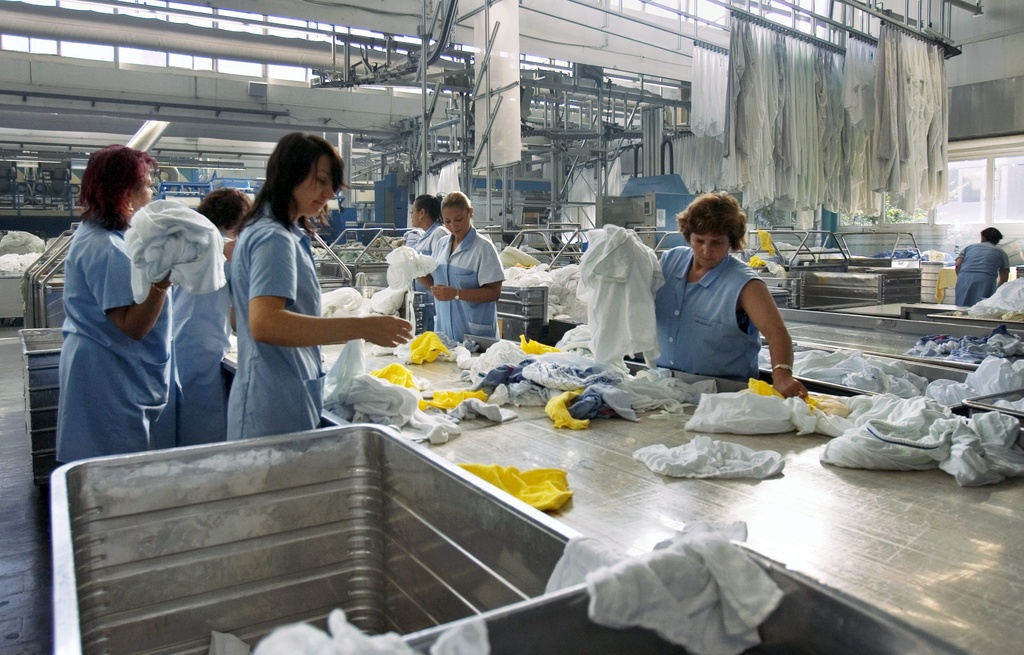
Immigration decision receives mixed welcome

Most Swiss newspapers have shown understanding for the government’s decision to re-introduce quotas for immigration from eight eastern European countries.
At the same time, editorialists queried its effectiveness and consequences – above all concerning Switzerland’s relationship with the European Union.
The Südostschweiz for example wondered “whether the bill for Switzerland would increase in the long run”.
“It appears more likely that within Brussels the pressure will increase to keep a really tight rein on its small neighbour and remove its special status,” it said.
Under the decision taken on Wednesday, B resident permits for people from Poland, Hungary, the Czech Republic, Slovenia, Slovakia as well as the three Baltic Republics of Lithuania, Latvia and Estonia will be limited to just over 2,000 for a period of at least 12 months.
The measure was invoked under a safeguard clause of a bilateral treaty between the EU and Switzerland for the free movement of people. It will take effect from May 1 and be reviewed next April. It can be extended until 2014 at the latest.
“Signal to the people”
The Tages-Anzeiger in Zurich also believed the goodwill shown towards Switzerland – “which is increasingly seen as stubborn and unmanageable” – would further dwindle in any case.
For the Neue Luzerner Zeitung this “signal to the people” was apparently so important for the government that the government accepted that in doing so it would irritate the EU.
Indeed, in a statement on Wednesday the EU’s foreign policy chief, Catherine Ashton, said Switzerland’s decision was a violation of the free movement of people accord.
“This measure is not justified economically, nor by the labour market situation, nor by the number of EU citizens looking to establish their residence in Switzerland,” she said.
Swiss Justice Minister Simonetta Sommaruga argued the move was part of a package of long-term measures to control the flow of people entering Switzerland amid pressure from political parties to limit immigration.
“Psychological significance”
Despite EU criticism, the Tages-Anzeiger believed the government had taken “a correct decision” of “great psychological significance” and had shown “stamina”.
“Had it not applied this brake, it would have broken its word,” the paper said. “Voters would then have lost confidence in the government.”
In the French-speaking part of the country, La Tribune de Genève agreed that something had to be done “if only for the sake of credibility”.
Le Temps, also in Geneva, said the government had no choice other than showing the public “that it takes their concerns and fears seriously”.
But for the Berner Zeitung, this was precisely what the government had failed to do. In its view, the decision was “revealingly half-hearted” and a “futile attempt … to appease voters without ruffling too many EU feathers”.
The Quotidien Jurassien said the government had in fact sent out the signal “that there is in fact a problem with the free movement of people”.
“Purely cosmetic”
Swiss leader writers were, however, in agreement over the “symbolic effect” of the decision.
For the St Galler Tagblatt, “it wasn’t and isn’t the citizens of these [eight] countries that have been and are still coming to Switzerland by the ten thousand”.
“Purely cosmetic” was how Le Temps described the measure.
“Activism which will without doubt fail to achieve its goal,” was the view of 24 Heures in Lausanne.
According to the Basler Zeitung, “not a single free train seat has been gained. Not a single house will become cheaper, not a single stream of commuters shorter. The decision is meant to show that the government is doing something – even if it doesn’t serve any purpose.”
The Neue Zürcher Zeitung (NZZ) on the other hand stressed that “all available means of control, which by themselves might not be decisive, are to be taken seriously” since “a few thousand immigrants plus families basically mean for example a few thousand additional homes”.
For this reason the NZZ wanted in future “an honest look at the complex links between migration, prosperity, environmental consumption, cultural diversity and problems with social integration”.
Around 75,000 immigrants arrived in Switzerland last year, up 15% on 2010.
At the end of December 2011 there were 1,772,279 foreigners in Switzerland, 3% more than the previous year, most of them from EU and European Free Trade Association (Efta) countries.
In total, 142,471 people arrived (134,171 in 2010), while 64,038 left the country (2010: 65,523).
Immigration from non-EU and non-Efta countries was down by 2,978 people, or 3.7%.
The majority of new arrivals are Germans (+12.6%), followed by Portuguese (+11,1%), Kosovars (+8,9%), French (+4,4%) and Eritreans (+2,6%).
Numbers are falling from Serbia (-10,4%), Bosnia and Herzegovina (-1,1%), Croatia (-1%) Sri Lanka (-1%) and Turkey (-0.5%).
Immigration from the EU-8 saw 4,700 people move to Switzerland between May 2011 – when immigration quotas applying to these countries was lifted – and the end of 2011. The increase over 2010 was 68.2%.

In compliance with the JTI standards
More: SWI swissinfo.ch certified by the Journalism Trust Initiative





























You can find an overview of ongoing debates with our journalists here . Please join us!
If you want to start a conversation about a topic raised in this article or want to report factual errors, email us at english@swissinfo.ch.